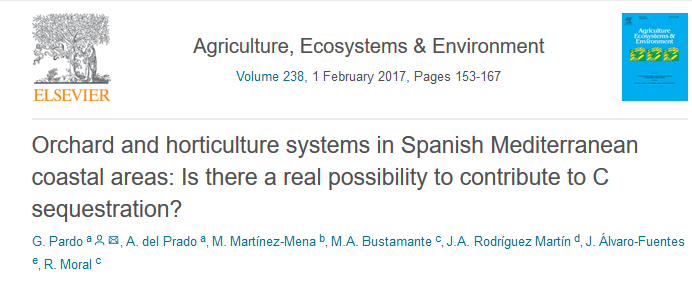3 otsaila, 2017
Published by BC3Research David Moreno at 3 otsaila, 2017
New BC3 Journal Article published: "Meli P., Holl K.D., Benayas J.M.R., Jones H.P., Jones P.C., Montoya D., Mateos D.M. 2017. A global review of past land use, climate, and active vs. passive restoration effects on forest recovery. PLoS One. e0171368."
13 otsaila, 2017
Published by BC3Research Stefano Balbi at 13 otsaila, 2017
Categories
Tourism is one of the prime manifestations of the ‘great acceleration of humankind’ since the Anthropocene started around 1950. The almost 50-fold increase in international tourism arrivals has substantial implications for environmental sustainability, but these have not yet been fully explored. This paper argues that a full exploration requires the study of tourism as a complex socio-ecological system. Such approach integrates environmental processes and stakeholder behaviour and puts feedbacks in the spotlight.
20 otsaila, 2017
Published by BC3Research at 20 otsaila, 2017
Categories
This study presents a new method for considering the risk of wind damage in forest planning and for predicting the amount of damage and its effects on timber production, economic profitability and carbon balance of forestry. The effects of wind damage on the optimal management of boreal forests under current and changing climatic conditions were analyzed by comparing four forest management plans. A reference plan maximized net present value (NPV) with even-flow harvesting constraints.
27 otsaila, 2017
Published by BC3Research Agustín del Prado Guillermo Pardo at 27 otsaila, 2017
Categories
Agriculture in the Mediterranean basin is currently contributing to greenhouse gas emissions (GHG) and in the future is expected to be strongly affected by climate change. Increasing soil organic carbon (SOC) via soil organic matter (SOM) improvement is widely regarded as a way to both mitigate and adapt to climate change. Using as a case study the Mediterranean coastal area in Spain, which is regarded as one of the most intensively managed areas in Europe for orchards and horticultural cropping, we analyzed the potential for climate change mitigation of introducing different practices that are expected to increase SOC.



